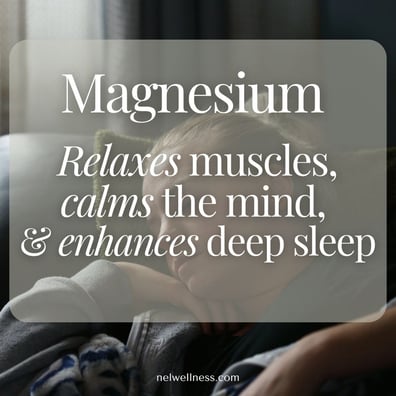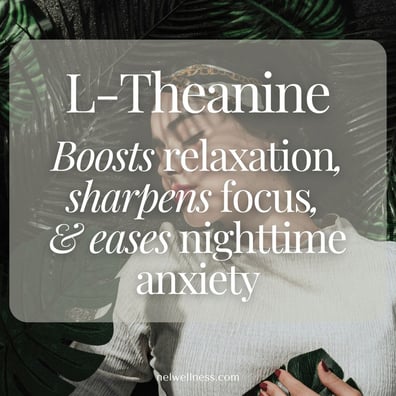Top 5 Supplements for Better Sleep and Stress Relief
In today’s fast-paced world, stress and sleep deprivation have become major concerns, especially for busy professionals trying to balance work, health, and personal life. Quality sleep is essential for physical recovery, mental clarity, and emotional well-being, but chronic stress and poor lifestyle choices often disrupt sleep cycles. Fortunately, natural supplements can help restore calmness, reduce stress, and enhance sleep quality without dependency on pharmaceutical medications.


Top 5 Supplements for Better Sleep and Stress Relief
Introduction
In today’s fast-paced world, stress and sleep deprivation have become major concerns, especially for busy professionals trying to balance work, health, and personal life. Quality sleep is essential for physical recovery, mental clarity, and emotional well-being, but chronic stress and poor lifestyle choices often disrupt sleep cycles.
Fortunately, natural supplements can help restore calmness, reduce stress, and enhance sleep quality without dependency on pharmaceutical medications. At Nel Wellness, we believe in holistic well-being, and the right supplements can complement your wellness routine, promoting deep relaxation and better sleep.
Let’s explore the top five supplements that can improve sleep quality and stress resilience, along with their history, benefits, and dosage recommendations.
1. Magnesium – The Relaxation Mineral
History & Background
Magnesium has been used for centuries to treat muscle tension, anxiety, and insomnia. Ancient civilizations, including the Greeks and Egyptians, recognized its healing properties, often using mineral-rich hot springs or Epsom salt baths to promote relaxation and stress relief.
Today, magnesium is widely studied for its role in neuromuscular relaxation, nervous system regulation, and sleep cycle enhancement.
How It Works
Magnesium plays a crucial role in regulating the nervous system by interacting with gamma-aminobutyric acid (GABA), a neurotransmitter that calms brain activity and promotes restful sleep. It also helps relax muscles, making it particularly beneficial for those who experience restlessness or nighttime cramps.
In addition, magnesium lowers cortisol levels (the stress hormone), reducing anxiety and tension that can interfere with sleep.
Benefits
Enhances deep sleep quality by calming the nervous system.
Reduces stress, anxiety, and muscle tension.
Supports melatonin production, the hormone responsible for regulating sleep cycles.
Potential Side Effects
While magnesium is generally safe, excessive intake can cause digestive issues such as diarrhea. Individuals with kidney conditions should consult a healthcare provider before supplementation.
Recommended Dosage for Busy Professionals
For better sleep and stress relief, 200–400 mg of magnesium glycinate or citrate taken 30–60 minutes before bedtime is ideal.
🔗 Scientific Backing: Magnesium has been shown to improve sleep efficiency and relaxation. National Library of Medicine
2. Ashwagandha – The Stress Adaptogen
History & Background
Ashwagandha has been a cornerstone of Ayurvedic medicine for over 3,000 years, known as the “king of adaptogens” for its ability to help the body adapt to stress and restore balance. Originally used in India and the Middle East, this ancient herb is revered for its ability to reduce anxiety, boost mood, and promote restful sleep.
How It Works
Ashwagandha helps regulate the hypothalamic-pituitary-adrenal (HPA) axis, reducing cortisol production and calming the fight-or-flight response. It also increases serotonin and dopamine levels, promoting a calm and positive mood.
Benefits
Lowers stress and anxiety levels.
Enhances sleep onset and quality.
Improves mental clarity and reduces brain fog.
Potential Side Effects
In rare cases, ashwagandha may cause mild digestive discomfort or drowsiness. Pregnant women and individuals with autoimmune conditions should consult a doctor before use.
Recommended Dosage for Busy Professionals
Take 300–600 mg of ashwagandha root extract once daily, preferably in the evening to support sleep.
🔗 Scientific Backing: Studies show that ashwagandha significantly reduces stress and improves sleep quality. Medical News Today
3. L-Theanine – The Calm-Inducing Amino Acid
History & Background
L-Theanine is an amino acid found in green tea, originally discovered in Japan in 1949. It has long been used in traditional Eastern medicine to enhance relaxation and mental clarity while promoting a state of calm alertness.
How It Works
L-Theanine increases alpha brain wave activity, which induces a state of relaxed focus, similar to meditation or deep breathing exercises. It also enhances GABA, dopamine, and serotonin production, reducing stress and anxiety while supporting restful sleep.
Benefits
Induces calmness without drowsiness, making it great for daytime stress relief.
Reduces nighttime anxiety, making it easier to fall asleep.
Enhances focus and mental clarity during the day.
Potential Side Effects
L-Theanine is generally well-tolerated and does not cause grogginess or dependence. However, some people may experience mild headaches if taken in high doses.
Recommended Dosage for Busy Professionals
Take 100–200 mg of L-Theanine in the morning for daytime stress relief or before bed for relaxation and better sleep.
🔗 Scientific Backing: L-Theanine promotes relaxation and improves sleep latency. Pub Med Central
4. Valerian Root – The Natural Sleep Aid
History & Background
Valerian root has been used for over 2,000 years in Greek and Roman medicine as a natural remedy for insomnia and anxiety. It was traditionally used to help soldiers sleep before battle and to treat restlessness and nervous disorders.
How It Works
Valerian root acts as a mild sedative by enhancing GABA levels, promoting relaxation and faster sleep onset. It also reduces nighttime awakenings, making it particularly beneficial for individuals with insomnia.
Benefits
Helps with falling asleep faster.
Reduces stress and restlessness.
Improves sleep depth and duration.
Potential Side Effects
Valerian root may cause drowsiness, so it’s best taken at night. Some people may experience vivid dreams or mild dizziness.
Recommended Dosage for Busy Professionals
Take 300–600 mg 30–60 minutes before bedtime for better sleep quality.
🔗 Scientific Backing: Valerian root improves sleep onset and quality. National Center for Complementary and Integrative Health
5. Melatonin – The Sleep Hormone Regulator
History & Background
Melatonin is a hormone naturally produced by the pineal gland, responsible for regulating the sleep-wake cycle. It was first discovered in 1958, and since then, it has become one of the most popular natural sleep aids.
How It Works
Melatonin levels rise in the evening, signaling to the body that it’s time to wind down and sleep. Supplementing with melatonin can help reset the body’s circadian rhythm, making it beneficial for night-shift workers, frequent travelers, and those experiencing sleep disruptions.
Benefits
Regulates the body’s sleep-wake cycle.
Helps with jet lag and shift work sleep disorders.
Reduces sleep onset time.
Potential Side Effects
Melatonin is safe for short-term use, but excessive doses may cause morning grogginess, headaches, or vivid dreams.
Recommended Dosage for Busy Professionals
Take 0.5–3 mg 30 minutes before bed for optimal sleep benefits.
🔗 Scientific Backing: Melatonin enhances sleep quality and regulates circadian rhythms. Sleep Foundation
Conclusion
Sleep and stress management are crucial for peak performance and well-being. By incorporating magnesium, ashwagandha, L-theanine, valerian root, and melatonin, busy professionals can improve sleep quality, reduce stress, and boost overall health.
Which supplement will you try first? Let us know! 🌙✨














